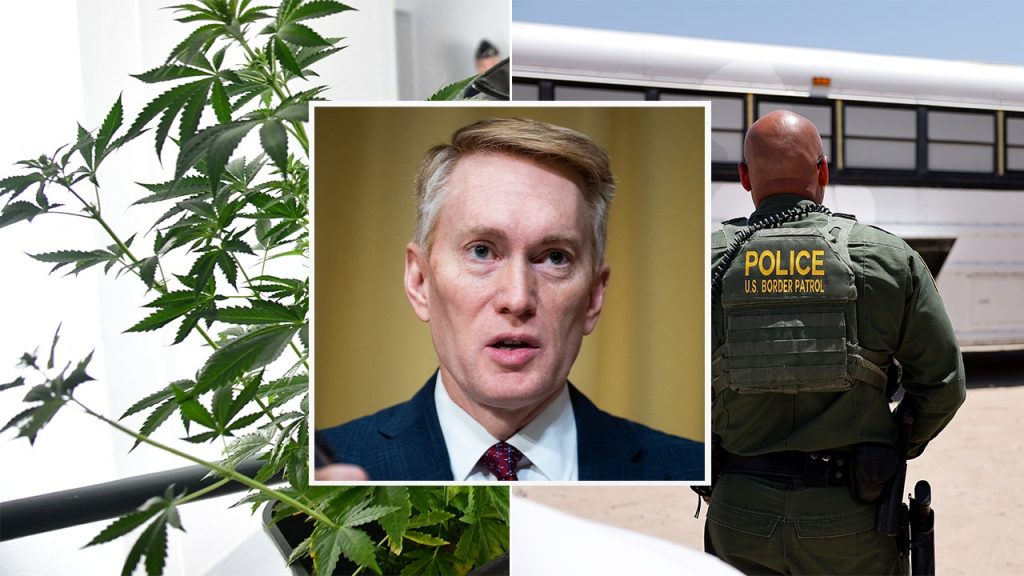Senator James Lankford of Oklahoma is calling on U.S. Customs and Border Protection (CBP) to reverse its policy on past marijuana use for Border Patrol agent recruits. The current policy bans applicants from using marijuana within 90 days of applying, a change from the previous two-year lookback. Lankford believes this change undermines the security and integrity of the Border Patrol workforce in their mission to protect against illegal drugs. CBP has not commented on the issue, but Lankford’s office was briefed on the policy amendment recently, with CBP citing confusion between federal and state laws regarding marijuana legalization as justification.
Lankford, as the ranking member of the Subcommittee on Governmental Operations and Border Management, argues that the CBP, as a federal agency, must ensure its personnel comply with federal laws regarding controlled substances. Recruits who admit to past marijuana use during polygraph tests also reportedly reveal other disqualifying criminal conduct, according to briefers from CBP. Lankford believes that this policy change could potentially increase the likelihood of recruits having ties to transnational criminal organizations, which contradicts the agency’s mission to stop the flow of illicit drugs and illegal immigration across borders. He is concerned about the security and integrity issues that could arise as a result of this policy change.
Legislation to regulate marijuana for non-medical use has been enacted in 24 states, two territories, and Washington, D.C. Lankford has called on CBP to rescind the policy change and restore the two-year lookback on marijuana usage among Border Patrol recruits. He argues that the agency’s reduced threshold for past marijuana use directly contradicts its mission and poses concerning security issues. Lankford believes that by allowing recruits with recent marijuana use to join the Border Patrol, there is a higher risk of compromising the agency’s ability to combat illegal drugs and immigration at the border.
The senator’s office indicated that CBP did not provide a comment to Fox News Digital by press time, and the timing of when this policy change was implemented remains unclear. Lankford emphasized that as a federal agency, CBP must adhere to federal laws regarding controlled substances, despite the discrepancy in state laws regarding marijuana legalization. He highlighted the potential risk that recruits with ties to criminal organizations could pose if the threshold for past marijuana use is lowered. Lankford believes that reversing this policy change is crucial to maintaining the security and integrity of the Border Patrol workforce in carrying out their mission to protect the nation’s borders.
Lankford has expressed his concerns about the implications of the CBP’s policy change on past marijuana use for Border Patrol agent recruits. He believes that this change undermines the agency’s mission to combat illegal drugs and immigration across borders. By allowing recruits with recent marijuana use to join the Border Patrol, there is a risk of compromising the security and integrity of the workforce. Lankford has called on CBP to rescind the policy change and restore the two-year lookback on marijuana usage among recruits to address these concerns and ensure compliance with federal laws on controlled substances.


